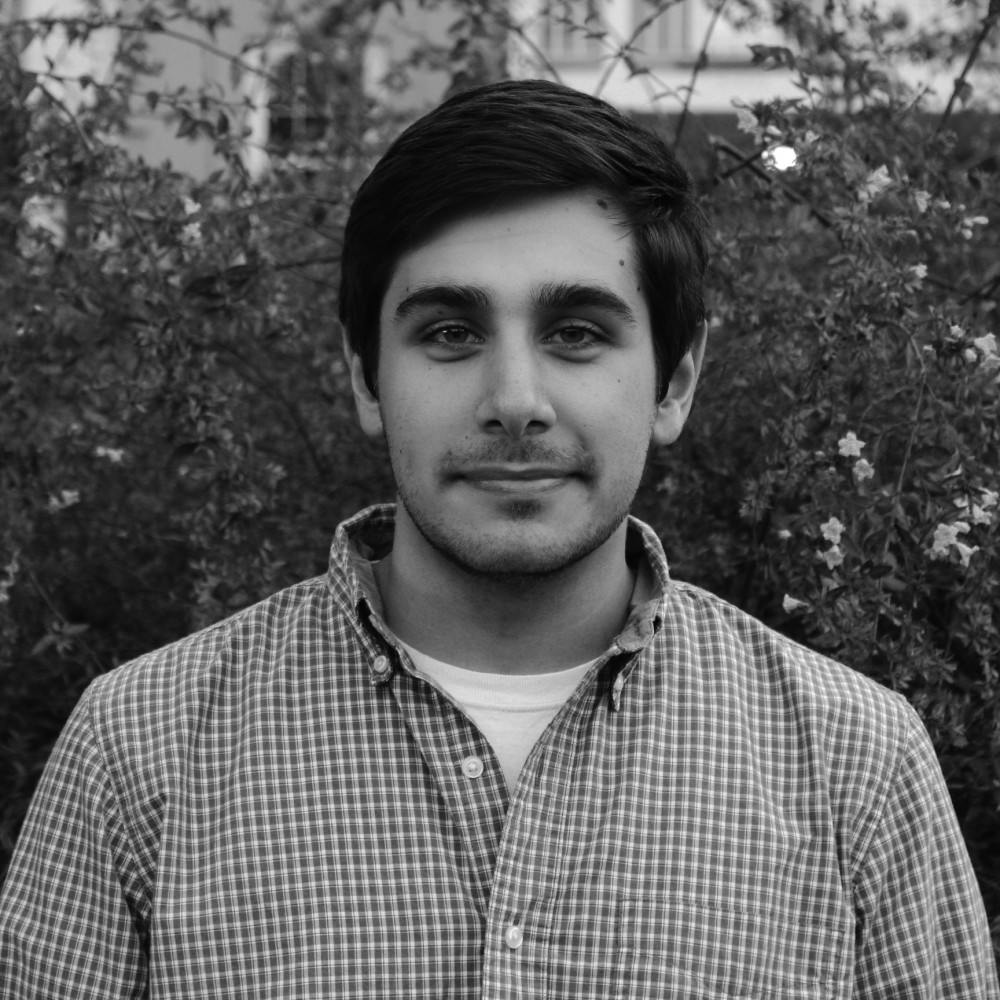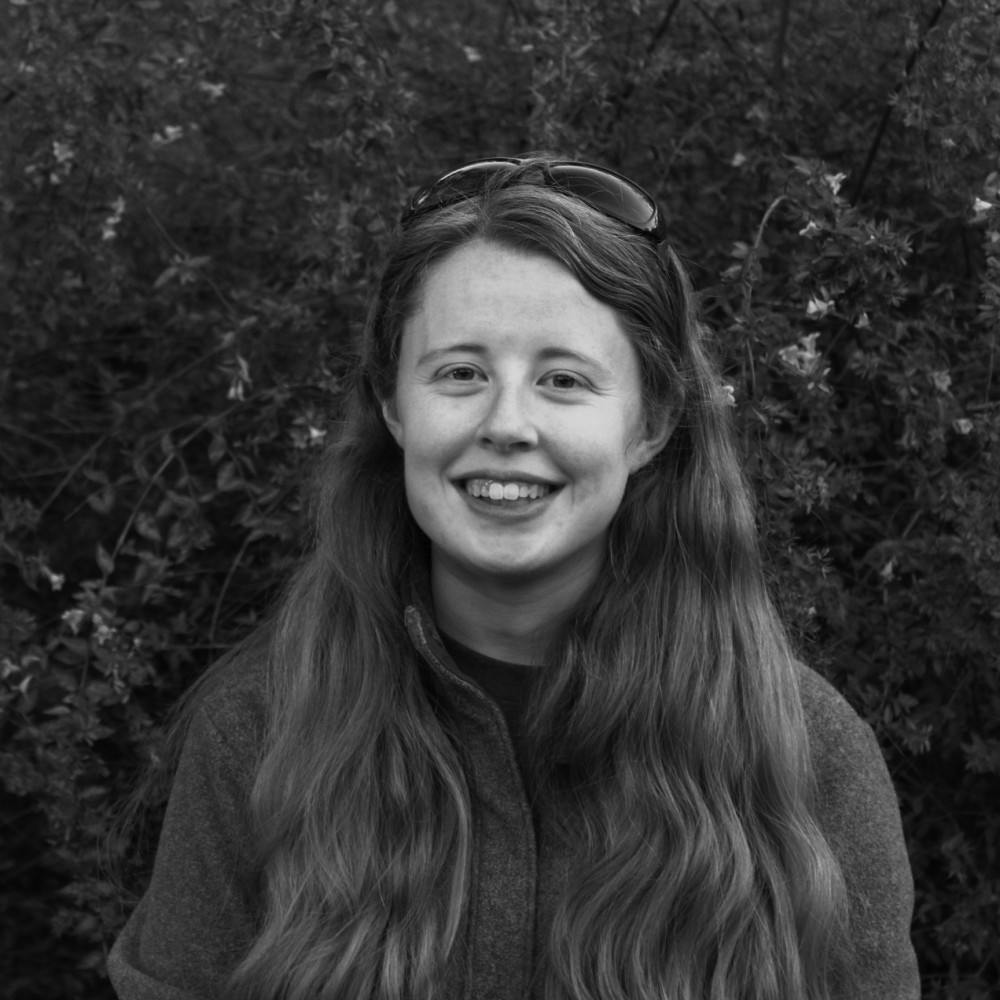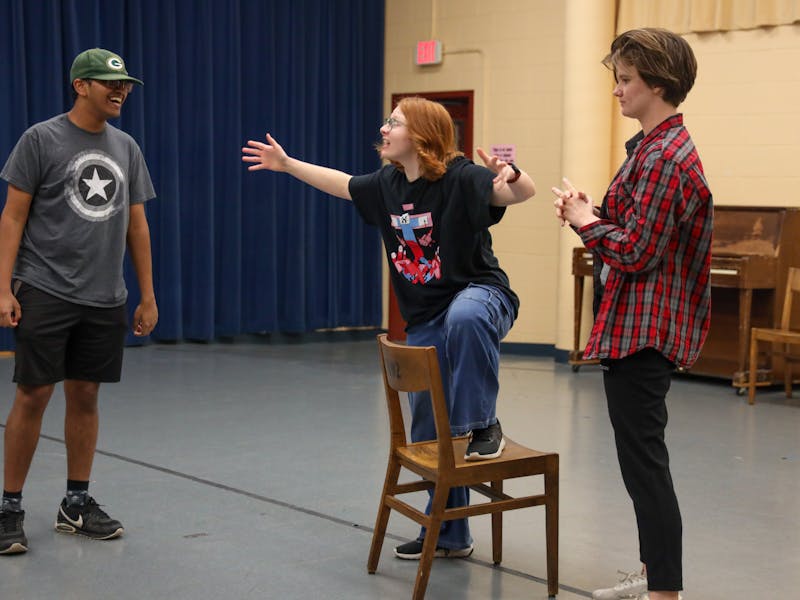This interview is the second installment of While I Have the Floor, a series focused on giving different student groups a platform for thoughtful discussion on issues of politics, religion, and culture. This issue, we’re sitting down with Mary Ramsey, News Editor of Student Media’s own Daily Gamecock, and Ryan Hodge, Editor-in-Chief of The Third Spur, a student-led and student-run satirical newspaper, to talk about real news, fake news and how to go about dealing with them both.
What led you guys to get involved in what you do?
RAMSEY: I came into USC as a journalism major — I still am a journalism major — so for me it was an opportunity to get practical experience early on. My situation was kind of weird in that I came in during a big time of transition. A ton of talented people had just graduated, so they were kind of desperate for new blood. I ended up getting promoted pretty quickly, and at that point I like to joke that basically all my friends were here, so I couldn’t leave. I did the newspaper in high school, too. It was a really good way to meet people and, at the same time, build my resume.
HODGE: Yeah, I also did newspaper in high school, but it was not a put-together operation. I was put in charge of it, and the most fun we had when we were doing it was writing the joking, funnier stuff. I’ve always enjoyed The Onion and stuff like that. When we came to USC, we saw that there was a satirical newspaper on campus, and we reached out to them — just a couple of my buddies from my suite in the dorm — and then that had sort of fallen to the wayside. They were all graduating. So we just started our own satirical newspaper.

What sources influence you when it comes to running your organization and putting out content?
RAMSEY: I think within Student Media specifically, I’ve been lucky to have a lot of great mentors a couple years ahead of me. For example, Sydney Patterson, who is — I think her official title is Social Media Manager — just an amazing resource. She’s a recent graduate, so she’s a great sort of adult to mentor us. We call her “the cool aunt.” On a broader level, I’m still really close with my high school journalism teacher. He was a sports reporter before going into teaching, so he’s a great resource. Speaking nationally, I come from a creative nonfiction background, so people like David Sedaris and Jeannette Walls are great influences, so kind of all over the place.
HODGE: I know that our stuff looks like The Onion, it has that same sort of feel, but we really like any source of really intelligent, smart satire. We really like to find different sources and look around and see what different kinds of publications are doing. There’s actually one, what was it? [He goes on to describe what I’m 98.2 percent sure is Reductress, check it out.] I really just enjoy reading funny stuff and trying to follow people who do that kind of writing.
RAMSEY: I think reading is the best way to learn, I always tell my writers. You have to read both good newspaper content and just good writing in general to be a good writer.

How has the recent news cycle affected you as content creators?
RAMSEY: I think it’s definitely affected me in a lot of ways. I think the biggest thing might just be making me more passionate about going into this field. There’s so much misinformation and I think a lack of media literacy in our culture right now. People just don’t understand what exactly a journalist does. So as a journalism major, as someone who’s studying the craft and wants to go into the craft, helping teach people what we do is becoming more important than ever. And not to get too Aaron Sorkin, but it’s just such an integral part of democracy, especially in a time when democracy is very much in flux. It’s just really important to have good, smart, talented people, now more than ever, going into the field.
HODGE: Yeah, it’s been really interesting. Writing satirical news, and now suddenly hearing about fake news, hearing about this general distrust of media, of certain media outlets. It’s been interesting for us, trying to find the differences between writing something that’s purposefully satirical and trying to make a point through joking about something. There’s truth inside that kind of joking nature of the article. We try to make some kind of point, to have some kind of absurdity that’s just fun to read. Sometimes we have to look at the stuff that we write and think, “Are people going to think that we’re trying to mislead them or something?” People have definitely believed our stuff, especially if they don’t read the body of the article. It’s definitely something that I think The Onion and all the other satirical news websites deal with. They feel like they deal in fake news, but it’s different.
What do you think about the recent attacks on media, especially from Washington?
RAMSEY: I think it’s problematic, but at the same time, there is a part of me that isn’t too concerned about it. It’s on such a bigger platform now, especially when you look at Donald Trump and Twitter. He’s a master of communicating via social media with his audience. I don’t think the president and the White House press corps have ever been best friends, and I don’t think that they should be. I think that should be a relatively antagonistic relationship. I think that’s the point of having a White House press corps. At the same time, I think it is amplified to a new level now, like when you see people at rallies wearing shirts about hanging journalists. That’s a genuine problem, and that’s a genuine threat to democracy in my opinion. So I think that there should be a level of antagonism, but I think that antagonism is getting out of hand, and needs to be sort of curtailed. Not even in the sense of, “Oh, I think people who say ‘fake news’ should be quiet and sit down.” I think that they should go out and try to improve their media literacy and that journalists have a responsibility to help them with that. I think both sides have an obligation to open their minds a little bit and get better at communication.
HODGE: One thing that I believe is that being skeptical about new information can be a good thing. It helps you be discerning about what you’re reading and making sure what you’re reading is accurate. We’re on social media so much, with so many people sharing things. I think that problems arise when a healthy skepticism becomes more of looking at a particular source like an enemy and like everything from that source is inherently false. It just hurts general discourse in politics and everyday topics because it becomes difficult to share information with people. It’s definitely a tough problem to solve, and I think that having people there to see what journalists do is very important. It’s wild to see people so vehemently against certain types of stories. Things that don’t necessarily align with what they were already thinking. We can’t be so opposed to change what we’re thinking just because we don’t want to.
What are some ways for people to become more media literate?
RAMSEY: Something I always tell people here at USC specifically is if you have time for an elective, take Journalism 101. It’s a fascinating course. It’s an overview of every aspect of media. Everything from journalism to advertising to public relations. It really does help you understand how media really mirrors the culture while at the same time really influencing that culture. Also, just take the time to really read. Trust, but verify. If something sounds weird, do a quick Google search and see if there are more articles about it from good sources. If you’re skeptical of something, check it out.
HODGE: Sometimes you’re reading something that might not be false but also might not cite everything they say, and you might have doubts about certain individual details, but they’re not going to explain every single thing. One thing I think that’s really helpful is that AP does fact-check articles. NPR does this, where they break it down for you. They go through those facts with you. It’s a really good resource that’s more accessible now than ever. I follow AP on Twitter so I can have that stuff right alongside the story that’s coming out. You’re able to also see commentary on the story or doubts cast by other people. You don’t feel like you’re on your own, trying to figure it out by yourself.
Where are your future plans for your respective platforms? What would you like to see them become?
RAMSEY: I’d like to definitely see Daily Gamecock to grow its audience as much as possible and connect with as many students as possible. I think we have an obligation to be representative of the student body as a whole, not just one kind of student. Also, just be willing to be bold. In college media, we have san opportunity to try new things. There are so many new ideas in media right now. Adopting the mindset of try it once and it doesn’t work, that’s fine, just try again with something else as long as we make sure that we’re meeting the students where they are, whether that’s transitioning more to social media, whether that’s a really strong design that catches people’s eye. It’s just really important to understand what they want and to help them meet their needs.
HODGE: For Third Spur, my goal since the beginning has been for it to be this deeply sarcastic voice of reason for campus where we write about stuff people can relate to and amplify feelings they already have in an entertaining way. You mentioned having all kinds of people coming to join — that’s been super fun for us. We get all these different types of stories and topics and we can satirize everything because everything can be satirized. It’s really interesting for us to expand because what we do right now is analyze how articles are put together. We look at how regular news is written and we try to mimic that; it’s how we’ve created kind of a news-like style guide that we try to follow. I don’t have much longer in school, so I’m excited to see what the next editor-in-chief and staff do. Maybe expand to different types of media that could be Third Spur-related, like audio and video and stuff like that, and try to take that voice of reason to other sorts of media. That would be cool. I’d love to see that.


